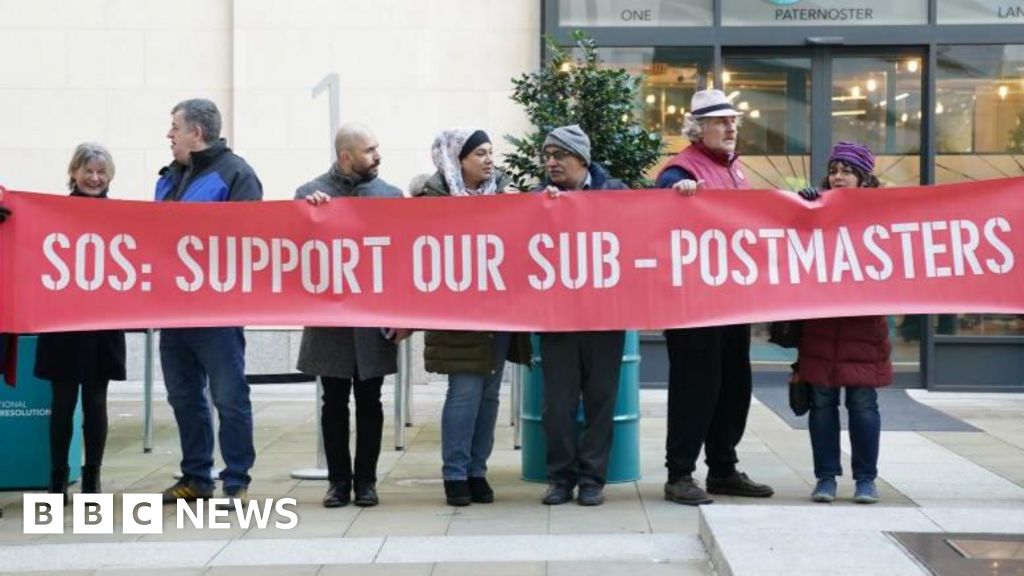
Tuesday marks a pivotal moment in the ongoing quest for justice for victims of the Post Office IT scandal, as part of a comprehensive inquiry report is set to be published. This segment will focus on the compensation and human impact of what is considered one of the UK’s largest miscarriages of justice. Thousands of sub-postmasters were erroneously held accountable for financial discrepancies due to the flawed Horizon computer system, developed by Fujitsu. Over 900 individuals faced prosecution, with 236 serving prison sentences.
Sir Wyn Williams, the chair of the extensive inquiry, has prioritized the victims’ experiences, delving into decades of technical evidence and questioning numerous individuals responsible for the injustices. Many sub-postmasters have testified, sharing stories of lost businesses, homes, and even imprisonment. Given the breadth of testimony since the inquiry’s inception in 2022, Sir Wyn’s findings are expected to be damning. The scandal gained broader public attention last year through an ITV drama, “Mr Bates vs The Post Office,” and the inquiry itself has garnered significant public interest, with over 20 million views on YouTube.
Compensation and Accountability
Despite the impending release of this report, accountability remains distant. The forthcoming section of the report, which will address who is to blame, is not expected for several months. Sir Wyn has shown particular interest in the compensation for victims, acknowledging that he has stretched his terms of reference on this issue “perhaps beyond breaking point.” He conducted four separate hearings on redress and issued an interim report in 2023, describing the various compensation schemes as a “patchwork quilt with a few holes in it.”
Victims and their legal representatives continue to fight for adequate compensation, hoping that Sir Wyn’s recommendations will prompt further action. Former sub-postmaster Lee Castleton, who was falsely accused of embezzling £25,000 from his East Yorkshire branch in 2004, criticized the decision to let the Post Office manage the compensation schemes. “This is destructive. You’ve got a cohort of people that still believe that they were right,” he told the BBC, suggesting that Sir Wyn, a former High Court judge, should have overseen the redress process to ensure fairness and equality.
Long Road to Justice
Sir Wyn is acutely aware of the urgency surrounding compensation for many victims, which is why he aims to publish his recommendations promptly. “It’s something I am very keen to say as much about as I reasonably can,” he stated during the inquiry last year. By dividing the publication of his final report into two parts, Sir Wyn can later address how the government has responded to his recommendations on compensation.
This approach contrasts with the infected blood scandal inquiry, which was reopened a year after its final report due to criticisms over slow compensation payouts. However, the implication is that the second part of the Post Office inquiry report, establishing what occurred and who is responsible, may not be released until 2026. This delay is attributed to the vast and complex evidence, as well as the necessity for those criticized to have a chance to respond. Consequently, any criminal trials may not commence until 2028, as police confirmed last month that they will not hand over files to prosecutors until after the final inquiry report is published.
Implications and Future Steps
As the first part of Sir Wyn’s report is published, the sub-postmasters’ protracted journey towards justice continues. The inquiry’s findings and recommendations will likely influence future legal and compensatory actions, but the path to full accountability and redress remains lengthy and uncertain. The scandal has not only highlighted significant flaws within the Post Office’s systems but also raised questions about corporate accountability and the treatment of individuals within large organizations.
Looking ahead, the outcome of this inquiry may lead to systemic changes in how similar cases are handled and could set precedents for corporate responsibility and victim compensation in the UK. As the public and those affected await the full findings, the hope is that this inquiry will ultimately lead to justice and closure for those wronged by the Horizon system.







